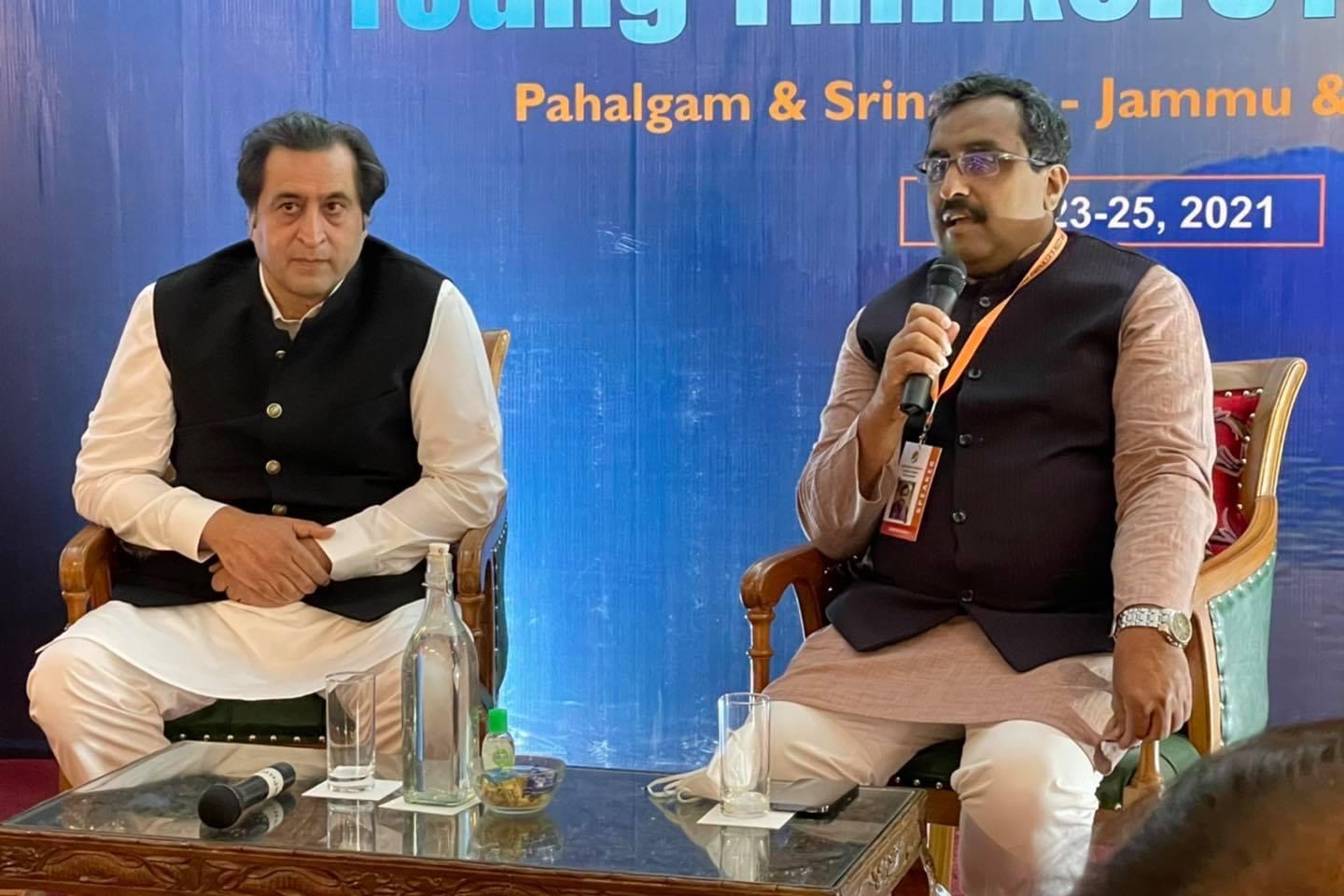‘Modi-Shah have successfully started a new chapter in Kashmir’s future, a chapter of positive nationalism’.
An invitation to the Young Leaders Forum (YTM) in Kashmir was a very alluring proposition for various reasons: (a) I had never visited Kashmir before; (b) I would get to interact with the who’s who of Kashmir (stakeholders across political platforms); and (c) Young thinkers’ forum had over 50 participants with versatile profiles (from researchers, media personnel, corporate professionals, young budding politicians to novelists, event managers and many more).
A perfect semi-paid working holiday (networking with fun element). When I reached Kashmir, I tried doing what everyone tries doing in such meets, putting on a phony pseudo intellectual façade, perhaps the best way to leave an impression. A bus ride from Srinagarto Pahalgam eased my tension. Was this an intellectual meet or a fun kitty party with friends? My intellectual make up was perhaps washed with water and my usual sarcasm followed. As soon as we reached Pahalgam, I found out that I have to share the room with one of the participants. Now my paranoia was playing tricks with me. How will I manage this? Sharing a bathroom? Fighting over TV? I thought the horror had just started. I was so wrong. The next three days would teach me my life’s biggest lesson—being open to new ideas, new lessons and enjoying the process of life.

My newfound openness was perhaps my best tool to assimilate the experience of Kashmir. My ideology has always been clear, a patriotic Indian, a liberal Hindu who is proud of his Indianness. I can proudly say India has 19,500 languages/ dialects and 10 + religions. Show me one country in the world that has such diversity. One image/ video that I had in my mind about Kashmir was 2014/2015 floods when stones were pelted on the army while they were trying to rescue flood victims. I was perplexed, why would someone hate their own army so much? Was this a general feeling or an aberration? Was the youth radicalized or misguided? Was the media amplifying the hatred?
I realized one thing; Kashmir essentially had three kinds of ideologies: 1) nationalistic; 2) radicalized; and 3) confused. The nationalistic ideology is clear, we are all one. Why does any state need special treatment? The radical ideology bordered on separatism and religious fanaticism. The most intriguing ideology was the third set of people, the confused set. Who were these people? What were their views on Article 370, 35 A? Were they anti-India?
In three days, the young participants of YTM heard close to eight politicians in mainstream Kashmir (across all ideologies), 15 presentations, five panel discussions, IAS officers, IPS officers, Constitutional representatives like the Lt Governor; followed by a mock debate (parliament style role play). This stirring of ideas was a great way to form our own opinions. It was neither suggestive nor coercive. It was independent irrespective of ideologies.
I observed that Kashmir just wasn’t nationalism vs separatism. It produced different types of ideology sets. Local politicians were caught in a battle of political survival. “Abolishment of Article 370, 35A and announcement of Jammu & Kashmir as a Union territory has taken all our power away, thundered a local political leader. Bureaucracy doesn’t listen to us anymore; this is so insulting. Give us our state back. Why do we have to prove our patriotism towards India everyday”. Local leaders spoke in a similar tone. 5 August 2019 had changed everything. The leaders no longer spoke about 370 and 35A. They just wanted statehood back. Leaders might still raise these issues for political posturing but in their mind, they know, this is an irreversible decision. Soft Nationalism is the new normal in Kashmir, even for political leaders. Today is 5 August 2021 (two years after the abrogation of Article 370) and we are seeing the Indian flag all over Dal Lake. This is something to be proud of.
I found a commonality between the political class in Delhi and the bureaucracy. They are on the same page. They want to prove that they have solved an age-old legacy issue of integrating Kashmir with India. The Lt Governor is on a time-bound mission in Jammu and Kashmir fully supported by the bureaucracy, He wants to prove a point in administration and implement impossible projects like BEAMs (Budget estimation and monitoring system) which took years to implement in other states, but was miraculously implemented in Kashmir in four months.
Two years to historical abrogation of Article 370: > The J&K government has Issued 41.05 Lakh Domicile Certificates; > 890 Central laws have been made applicable to J&K; > 205 J&K state laws have been repealed, and > 130 state laws have been modified and applied in J&K.
The youth of Kashmir is the most difficult to read. Most of them didn’t care about 370 and 35A when I spoke to them. What they were worried about was the legitimacy of their state. “When will we be a state? Will we ever be one? Why this stepmother treatment? Will Delhi control us? Nobody was discussing Article 370. This is perhaps because they knew the Government would never ever reverse this decision. Whatever be the case, I strongly believe in one thing that 370 and 35A is an event of the past. Modi-Shah have successfully started a new chapter in Kashmir’s future, a chapter of positive nationalism.
(The author is Vice President-Corporate Affairs, Reliance Industries)

